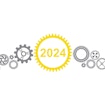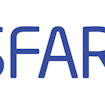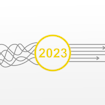
We are significantly expanding the cohorts under the Simons Searchlight program. This program was formerly called Simons Variation in Individuals Project (Simons VIP) but has recently been rebranded to Simons Searchlight to better reflect the perspective of the participants about the role of the study: a searchlight for research to address their questions and beacons of hope to provide better supports and treatments in the future.
Simons Searchlight provides a mechanism to recruit participants for your research — either studies focused on a single gene/copy number variant (CNV) or across genetic events. We will email invitations to your study to eligible participants. For family groups that host in-person family meetings, there may be opportunities for researchers to perform studies on-site at the meetings.
We are expanding Simons Searchlight in many important ways outlined below:
- We are increasing the number of genes and CNVs in Simons Searchlight as SPARK and other autism/neurodevelopmental disorder cohorts identify additional risk genes/CNVs.
- 159 genes and 19 CNVs are currently part of the Searchlight community.
- We are expanding the number of participants in each of the Simons Searchlight gene/CNV cohorts as clinical diagnostic genetic testing and SPARK identify more individuals with these conditions. This should greatly aid natural history studies, as well as other clinical research studies, and will ultimately help to power future clinical trials. Information about mutation spectrum and frequency will also be valuable to the research community and will lead to a better understanding of genotype/phenotype correlations as well as biological mechanisms underlying autism.
- In total, more than 2,000 individuals and their families are currently registered in Searchlight across genetic groups.
- Phenotypic data for 1,185 affected individuals (in 13 single genes or deletions/duplications in two CNVs) are available to researchers.
- Biospecimens (including fibroblast and lymphoblastoid cell lines as well as DNA from cell lines, saliva and/or blood) are also available for some affected individuals and unaffected relatives in gene/CNV cohorts.
- We are collecting and storing blood samples with the intention of transforming a large number of these to induced pluripotent stem cells (iPSCs) in a highly standardized way at a centralized facility. These iPSC lines will then be broadly available to the research community for additional studies.
- We are expanding Simons Searchlight to several different languages to enable families from around the world to meaningfully contribute. Spanish will be added in the coming weeks, followed by Dutch, French and Italian in the near future.
- We have expanded the breadth of symptoms and information collected in our medical history questionnaire and continue annual longitudinal follow-ups with families by telephone interview.
- We are adding new measures to expand the clinical/phenotypic data we are collecting, including a comprehensive epilepsy history in consultation with the Rare Epilepsy Network.
- We continue to collect the Vineland Adaptive Behavior Scales. Families also complete developmental history, seizure history, Social Communication Questionnaire, Social Responsiveness Scale and Child and Adult Behavior Checklist questionnaires online.
- We are also able to collect neuroimaging (e.g., magnetic resonance imaging) and neurophysiological (e.g., electroencephalography) data and welcome feedback from the research community about how relevant such data are for your studies, since the collection and dissemination of such data sets represent a significant investment.
- We are actively exploring the possibility of incorporating wearable sensor data (from Fitbits and similar devices) to provide quantitative and longitudinal measures of activity/sleep and other similar biological readouts that may be useful endpoints in clinical trials.
- If there are additional measures or data we are not currently collecting, we welcome your input and will consider expanding the phenotypic battery.
Researchers can request access to Simons Searchlight data and biospecimens via SFARI Base.
Feedback and suggestions can be emailed to: [email protected].


